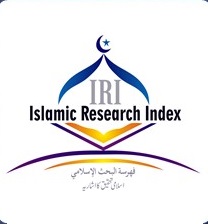The Civilizational Approach to the Study of Islam
DOI:
https://doi.org/10.58932/MULF0011Keywords:
Civilizational approach, clash of civilizations, culture, essentialist approach, diversity, encounter, exchange of knowledgeAbstract
The paper explores the study of Islam as a civilization and considers the lived experiences of Muslims from a sociological perspective. The history of Islam is intertwined with world history and consists of many genuine encounters and exchanges between Muslims and non-Muslims. The civilizational approach to the study of Islam indicates that Muslims and Muslim societies were ready to learn from other religious groups. This article will examine the situation in Baghdad and Cordoba during the 10th-century and show how different socio-economic, political, and religious systems were enriched by means of exchanges between diverse religious groups. Instead of becoming involved in debates about doctrine, which can be divisive, the study of Islam from a civilizational perspective can promote understanding and encourage cooperation among different religions.
References
Chatterjee, P., (1986). Nationalist Thought and the Colonial World: A Derivative Discourse? Zed Books.
Esposito, J. L., & Ibrahim, K., (2011). Islamphobia: The Challenges of Pluralism in the 21st Century. OUP USA.
Friedman, E. H., (2005). The Cambridge history of Spanish Literature. Renaissance Querterly.
Gacek, A., (2006). The arabic manucript tradition. A history of the book in the Islamic World. Cambridge University Press.
Geertz, C., (1973). Religion as a culture system: The Interpretation of Cultures. NY: Basic.
Gellner, E., (1983). Muslim Society. Cambridge University Press.
Hassani, M., (2010). Fight in the history of Islam: Abbas Ibne Firnas. History of Science and Technology in Islam, 69-82.
Hodgson, M. G., (1974). The Venture of Islam: Conscience and History in a World Civilization. University of Chicago Press.
Huntington, S. P., (2020). The Clash of Civilization? The New Social Theory Reader, 305-313.
Ihsanoglu, E., (2010). Islamphobia and Terrorism: Impediments to the Culture of Peace. Islamphobia and Anti-Muslims, 9-13.
Islam, M. T., (2018). Peacful Coexistence of Various Religious Groups in Islam. Journal of Islamic Thought and Civilization, 183-203.
Kennedy, H., (2001). The Court of the Caliphs: When Baghdad Ruled the Muslim World. Phoenix.
Khaldun, I., (1974). Muqaddima, Translated by F. Rosenthal NJ Daword. Princeton University Press.
Kroeber, A. L., & Kluckhohn. (1952). Culture: A Critical Review on Concepts and Definitions. Papers: Peabody Museum of Archaeology & Ethnology. Harward University.
Kundnani, A., (2014). The Muslims are Coming!: Islamphobia, Extremism, and the Domestic War on Terror. Verso Books.
Lapidus, I. M., (2014). A History of Islamic Societies. Cambridge University Press.
Lewis, B., (1994). Islam and the West. Philosophy East and West, 135-138.
Mamdani, M., (2005). Good Muslim, Bad Muslim: America the Cold War, and the Roots of Terror. Harmony.
Menocal, M. R., (2004). The Arabic Role in Medieval Literary History: A Forgotten Heritage. University of Pennsylvania Press.
Revolution, R. M., (2021). Negotiating Mughal Law: A Family of Landmarks Across Three Indian Empires. 243-258.
Said, E. W., (1979). Orientalism.
Said, E. W., (2014). The Clash of Ignorance. Geopolitics, Routledge, 191-194.
Said, K., & Eid, M. (2012). Clash of Ignorance. Global Media Journal, 1-18.
Shaw, S. J., & Shaw, E. K. (1977). History of Ottoman Empire and Modern Turkey, 1808-1975. Cambridge University Press.
Surah Al Alaq. (n.d.). Qur’an.
Surah Ar-Rum. (n.d.).
Tillier, M., (2018). Religious Minorities and the Early Islamic State: The Views of Christians and Jews in the writing of Al-Tabari and Al-Masudi. Islamic History and Civilization, Studies and Texts, 267-287.
Trust, R., (1997). Islamphobia: A Challange for us all. London: Runnymede Trust, 3.
Urquhart, J., (2006). How Islam Changed Medicine: Ibn Sina (Avicenna) Medicine and Surgery As One.
Downloads
Published
How to Cite
Issue
Section
License
Copyright (c) 2023 South Asian Journal of Religion and Philosophy (SAJRP)

This work is licensed under a Creative Commons Attribution-NonCommercial 4.0 International License.









